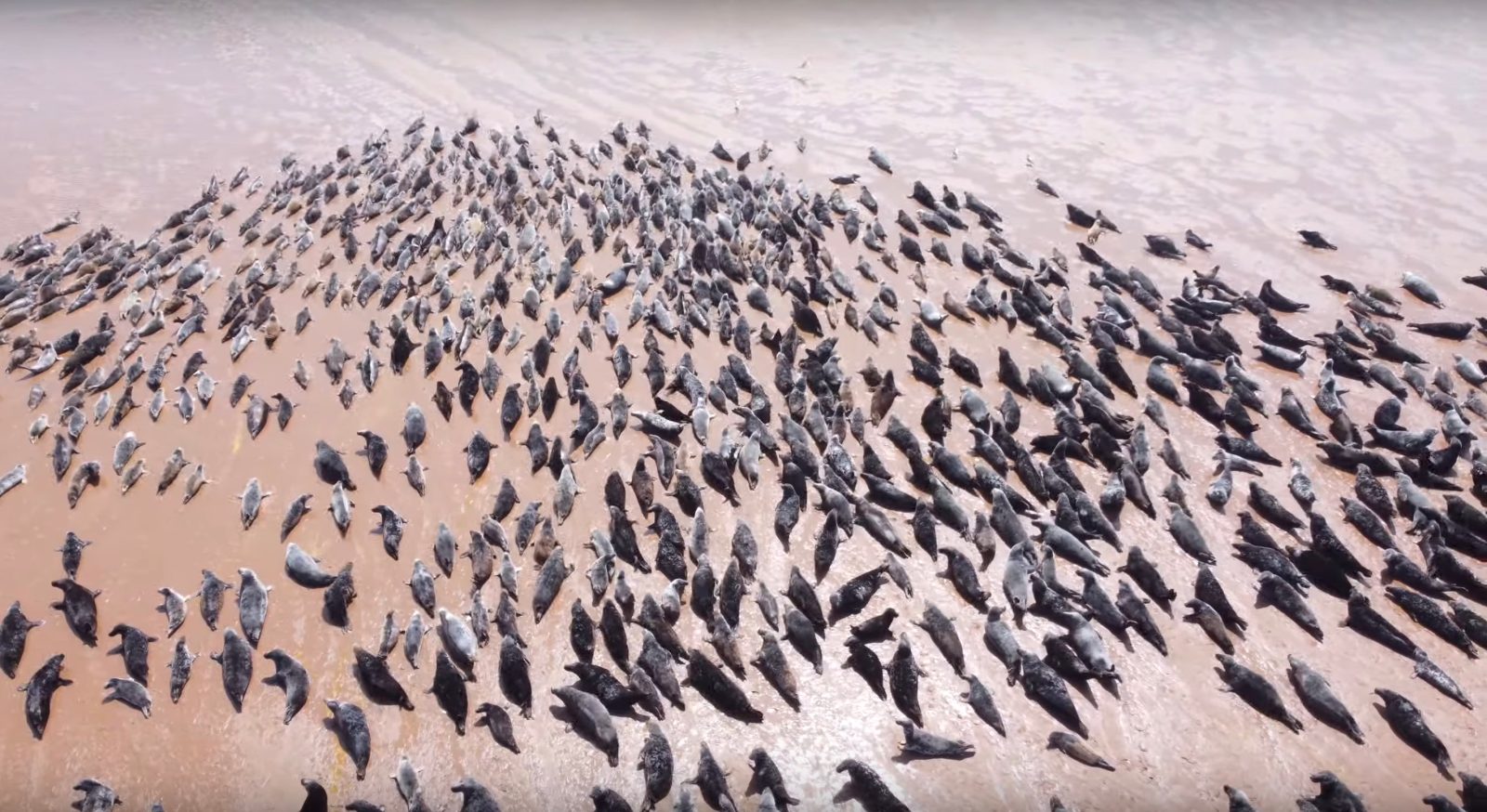
As DroneDJ has sadly had occasion to note, the incidence of misguided pilots flying uncrewed aerial vehicles (UAV) too close to wildlife has increased considerably around the globe in recent months. In an effort to turn that curve around on their watch, Canadian authorities are issuing stern reminders that laws prohibit disturbance or marine animal harassment by drones – and carry heavy fines for pilots who do.
BC intent on preventing harassment of marine animals by drones
Last week, the government’s Department of Fisheries and Oceans (DFO) renewed warnings to residents and visitors to coastal British Columbia that it’s illegal to navigate drones close to marine mammals or otherwise engage in animal harassment. Violations, they note, can involve potential fines of up to $100,000 for first time offenders, and get stiffer from there. The pointed alerts come amid increased reports of UAV posing serious risks to sea creatures by navigating close to them. The DFO has received 20 complaints of marine mammal harassment and disturbance involving such craft since 2020, with 50% of those occurring this year.
“Especially during COVID, we’ve seen an increase in the amount of (Vancouver) Island residents using drones, and it’s becoming one of our most common violations that we’re seeing here in the south coast,” DFO official Dustin De Gagne told the Vancouver Island Free Daily.
Canadian federal laws prohibit drones from approaching sea mammals within half a nautical mile at altitudes of less than 1,000 feet. That legal ban includes any aspect of flight maneuvers, including taking off, landing, altering trajectory, or simply passing by as part of a longer sortie.
The appeal of filming wildlife is, of course, understandable – especially given the swiftly improving photographic and video power aboard UAV. Temptation to capture those creatures at close range increases further with each new yearning human taking to the skies in search of nice footage. But as understandable as the reaction of wanting to film animals is – especially wild critters spotted in their natural setting – officials say it poses too much potential danger to permit.
Even the whine of motors can cause marine mammals harm
Unpredictable reaction from wildlife feeling threatened by the craft creates the risk of them being maimed. There’s obviously possibility of rotor injuries if the creature attacks or tries to bat the craft away. Sea mammals like pinnipeds may also crush one another when they spook and stampede in flight. Meanwhile, even the whine of drone propellers can cause both acoustic and physical disturbance to certain marine mammals, including whales, seals, and sea lions. The effects of those can erode their energy levels, and undermine how they pursue tasks essential for their survival.
“The science is indicating that with the use of drones — depending on the distance, type, and other variables at play — there is a high likelihood of disturbance or harassment to marine mammals,” De Gagne explained. “This is just one more variable that could adversely affect them.”
There have even been occasions when defiant (or more probably uninformed) pilots have inadvertently interfered with DFO work to rescue endangered animals as well. Those included a DFO craft forced to abandon capturing video of an entangled whale that marine rescuers needed in preparations to free the creature after a leisure drone insisted on flying around it to shoot footage of its own.
The DFO urges anyone who witnesses a drone flying too close to marine animals or any wildlife to record and report the violations to the agency at 1-800-465-4336 or by email at dfo.orr-ons.mpo@dfo-mpo-gc.ca
FTC: We use income earning auto affiliate links. More.




Comments